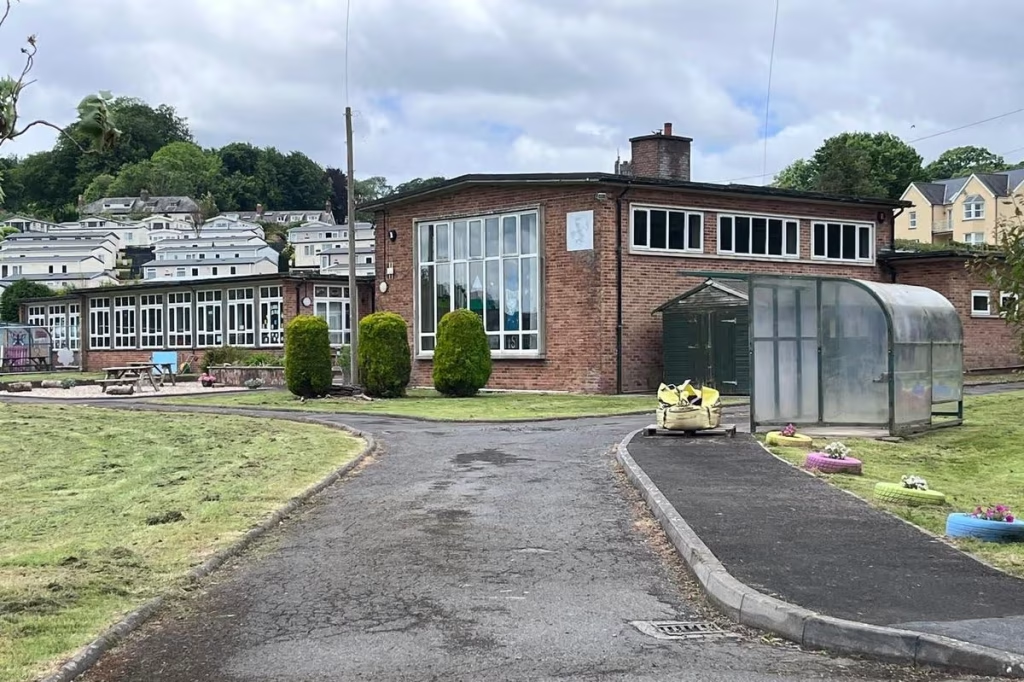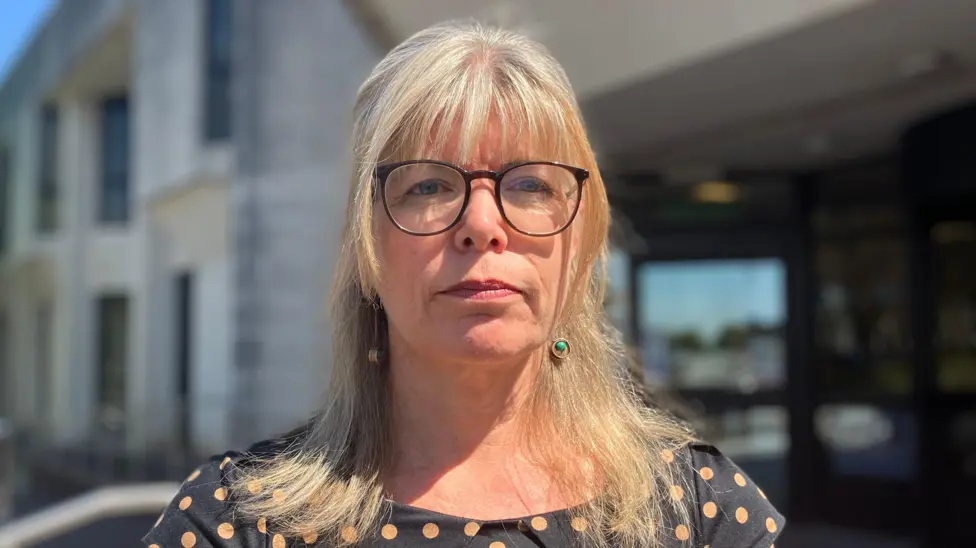Education
Concerns over kids’ sugar intake

 THE CHIEF MEDICAL OFFICER OF WALES, Dr Ruth Hussey, showed concern when discussing sugar consumption in Wales. Dr Hussey told The Herald: “People across Wales are eating too much sugar. It’s surprising how much sugar there is in some of the food and drink we give our children and these eating habits can have a huge impact on their health.” Figures show, that children aged four to ten years old are the second biggest consumers of sugar, getting 14.7 percent of their energy from sugar.
THE CHIEF MEDICAL OFFICER OF WALES, Dr Ruth Hussey, showed concern when discussing sugar consumption in Wales. Dr Hussey told The Herald: “People across Wales are eating too much sugar. It’s surprising how much sugar there is in some of the food and drink we give our children and these eating habits can have a huge impact on their health.” Figures show, that children aged four to ten years old are the second biggest consumers of sugar, getting 14.7 percent of their energy from sugar.
Medical advice is that no more than 10 percent of a person’s daily calorie intake should be made up of sugar, which is the equivalent of 11 to 14 level teaspoons of sugar a day. However, a can of fi zzy drink such as Coke can contain up to nine teaspoons of sugar, with up to forty teaspoons in a two- litre bottle. Therefore, it becomes extremely easy to go over the amount of sugar recommended in your daily guidelines. For younger children, soft drinks, confectionery and fruit juice are the major sources of sugar in the diet.
Hussey stated: “From cereal in the morning through to puddings in the evening, not to mention the sugary drinks and snacks, it all adds up. “Too much sugar can mean our children facing a life of bad health, from obesity, type 2 diabetes through to dental problems.” When looking at statistics, it’s clear to see that obesity in Wales is becoming a concern, the latest fi gures show that 40 percent of seven to eleven year olds in Wales are obese or overweight. This is partly down to the child’s diet and sugar consumption.
However, it’s not just younger children that this applies to, children aged 11 to 18 get 15.4 percent of their energy from sugar and adults 11.5 percent. ‘Which?’ reviewing company analysed the nutritional content of a range of items targeted by leading manufacturers at children’s lunchboxes and found “that a combination of the most sugary food and drinks could yield the equivalent of 12 teaspoonfuls of sugar in one meal.” Items such as Robinsons orange Fruit Shoot contained nearly five teaspoons of sugar, as well as Munch Bunch Double up containing two teaspoons of sugar.
They stated that these products should specify the amount of sugar in, and stop the products appearing healthier than they actually are. A new drive to help families across Wales cut back on the amount of sugar they eat each week has now been launched. The Change4Life Sugar Swap campaign is aimed at families with children aged four to 11 and offers tips on how to replace sugary foods with healthier options. These include swapping ice cream with sugar free jelly or yogurt, or cakes with wholemeal biscuits.
Hussey said: “With the Sugar Swaps campaign we are helping families take small steps to make a huge difference to the lives of their children.” Families can sign-up for a free Sugar Swaps pack to help them get started and get advice on how to change their eating habits for the better.
Community
Letterston nursery equipment could be stored in cemetery

A CALL for a storage container for a “well-established and valued” Pembrokeshire children’s nursery in a nearby cemetery has been submitted to county planners.
In an application to Pembrokeshire County Council, Diane Evans of Meithrinfa Do Re Mi Nursery seeks permission for the installation of a storage container, partially in retrospect, at Horeb Cemetery, Station Road, Letterston.
A supporting statement says: “The container is required to provide essential ancillary storage to support the lawful and established nursery use within the [nearby] chapel building.
“The site forms part of an active cemetery, owned and managed by a group of trustees. The applicant is one of the trustees and has obtained formal permission from the trustees for the container to be sited on this land. The area selected previously comprised a large, longstanding mound of garden waste which has now been removed. The land has been levelled and prepared with a hard-standing base.
“The container will be used solely for storage of nursery equipment and materials, including outdoor learning resources, maintenance equipment, and items required to manage both the nursery grounds and the cemetery land. No additional operational activity will take place within or around the container.”
It adds: “The day nursery provides childcare for approximately 83 children from the local community and employs 21 staff, all of whom live locally. The nursery is a well-established and valued community facility, supporting local families and contributing positively to the local economy. Adequate storage is essential to ensure the safe, efficient and compliant operation of the nursery. The chapel building itself has limited internal storage, making external ancillary storage necessary.”
It says the nursery “operates with a strong community focus and promotes sustainability and environmental awareness,” with plans to soften its appearance through the planting of trees, shrubs and flowers.
It added: “Children will take part in a ‘sow, grow and give’ project, growing cut flowers from seed. These flowers will be made available to the community, particularly visitors to the cemetery, who will be invited to cut flowers to place on the graves of loved ones. This initiative enhances biodiversity, strengthens community links, and adds social value to the cemetery space.”
The application will be considered by county planners at a later date.
Education
Parents urge council not to close Ysgol Llansteffan

Campaigners call for delay amid Welsh language investigation and rising pupil numbers
PARENTS and campaigners have urged Carmarthenshire County Council’s Cabinet not to recommend the closure of Ysgol Llansteffan when members meet on Monday (Feb 23).
The appeal comes ahead of a proposed decision that could see the village’s Welsh-medium primary school close in August this year.
The Ysgol Llansteffan Parents and Teachers Association (PTA), supported by Cymdeithas yr Iaith, has written to councillors calling for the process to be halted, arguing that key evidence remains incomplete and that the case for closure is flawed.

Among their concerns is an ongoing investigation by the Welsh Language Commissioner into the language impact assessment used to support the closure proposal. Campaigners say it would be inappropriate for the council to make a final decision before the investigation is concluded.
They also claim no council decision-makers have visited the school to verify the information used in the proposal, despite significant changes in circumstances, including a rise in pupil numbers to 17 as of January 2026.
The PTA argues that this increase undermines earlier projections and raises questions about the reliability of longer-term forecasts used to justify closure.
Financial concerns have also been raised. While council documents suggest annual savings of around £112,000, campaigners say transport costs of approximately £50,000 per year and inflationary pressures have not been clearly accounted for, potentially overstating the net benefit.
Parents say closure would remove parental choice and risk damaging Welsh-medium education in the area by forcing some children to travel further or potentially move into English-medium provision.
Cymdeithas yr Iaith has backed the PTA’s call, warning that the council’s objection report failed to properly address concerns that insufficient school capacity elsewhere could push pupils out of Welsh-medium education altogether.
Campaigners have also criticised what they describe as factual inconsistencies in the council’s reports, including outdated enrolment figures and conflicting capacity estimates for neighbouring schools.
The PTA has asked the council to defer any decision until updated data is available, the Commissioner’s findings are published, and alternative options for sustaining the school have been fully explored.
In their letter, parents stressed they remain willing to work constructively with the council to develop a long-term solution that would allow the school to remain open as a sustainable Welsh-medium provision for the community.
Carmarthenshire County Council has previously said the proposal is intended to address falling pupil numbers, high surplus places and financial pressures at the school. Cabinet members were told earlier in the process that neighbouring Ysgol Llangain would have sufficient capacity to accommodate pupils if the closure proceeds, and that transferring learners would provide access to improved facilities and help ensure long-term sustainability of education provision in the area.
The final decision is expected to be taken by full council in March following the Cabinet’s recommendation.
Crime
Teacher stabbed by pupil criticises school weapon scanner plans

Victim says teachers should not be turned into “security guards” after Ammanford attack
A TEACHER who was stabbed multiple times by a pupil at a Carmarthenshire school has criticised proposals to introduce weapon scanners in classrooms, warning they risk shifting responsibility onto already overstretched staff.
Liz Hopkin was attacked by a teenage student at Ysgol Dyffryn Aman, Ammanford, in April 2024, in an incident that shocked communities across Wales.
Speaking to BBC Radio Wales, Ms Hopkin said she does not believe scanners are “the answer” to preventing violence in schools and warned they could undermine relationships between teachers and pupils.
She said the focus should instead be on preventing young people from bringing weapons to school in the first place.
“This isn’t about preventing people bringing knives into school in the first place. This is just about detection,” she said.
“If by the time you’ve got the knife in school, you’ve missed so many opportunities prior to that to stopping that knife coming in in the first place.”
Ms Hopkin also warned that introducing scanning responsibilities could place teachers in unsafe and inappropriate situations.
“To stop putting the responsibility onto schools — we already have enough responsibility with less and less and less resources,” she said.
“You’re adding the role of security guard to teachers who are trying to build relationships with young people.”
Despite suffering serious injuries in the attack, she said she still did not believe scanners were the right approach.
“In my own head, as somebody who’s been right at that point where I’ve been stabbed — I was stabbed five times and feared that I would die — I still don’t think it’s a good idea,” she said.
The Welsh Government told the BBC that its work around weapons in schools forms part of a wider strategy to improve behaviour, with a strong emphasis on prevention rather than enforcement.
Officials said any decision to use scanners would be made by individual local authorities, and there is no expectation that teachers or school staff should carry out security duties.
Some councils have already trialled handheld scanners. Cardiff Council has supplied them to schools, but they are only used when there is a clear concern a pupil may be carrying a weapon.
The stabbing at Ysgol Dyffryn Aman led to renewed debate about school safety across Wales, including behaviour management, pupil support services, and funding pressures facing education.
Ms Hopkin added: “I would never ever suggest that anybody put themselves at risk to check. That’s not our role.”
(Image: BBC)
-

 Health4 days ago
Health4 days agoWithybush loses emergency surgery in shock health board decision
-

 Health4 days ago
Health4 days agoHealth board confirms major hospital changes across west Wales
-

 Health2 days ago
Health2 days agoConcerns grow over Bronglais stroke plans as politicians demand clarity
-

 Health4 days ago
Health4 days agoHealth board: Changes will bring “resilience and sustainability” to West Wales services
-

 Local Government19 hours ago
Local Government19 hours agoCandidate who withdrew from Hakin race will still appear on ballot paper
-

 Business6 days ago
Business6 days agoMS’s host business advice surgery following demand from Business Rates Online Forum
-

 Business6 days ago
Business6 days agoSvitzer crews at Milford Haven vote for industrial action in pay dispute
-

 Crime7 days ago
Crime7 days agoMan who attacked woman outside Milford Haven bar ‘shows no remorse whatsoever’

























